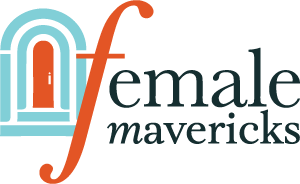Turnover and unhappy employees are a way of life—especially at a professional services firm, where the revolving door can feel like a merry-go-round gone rogue. There was a time when we felt we were dealing with this issue far more than our clients problems. Predictable, we assumed the culprit was our hiring practices, until a really brilliant HR counselor (thanks, Jill) told us maybe we needed to take a cold hard look in the mirror. We didn’t love what we saw.
We quickly realized that not everyone on our team was wired like us. While Beth and I are hard-charging, ambitious women who juggle business and family like pros (or at least try to), we’ve often found ourselves working crazy long days to push the business forward while being hyper-involved in our kids’ lives – maybe even to a fault. So, when someone inevitably falls short of our lofty expectations, let’s be honest: we might just be a tad too hard on them for not delivering the goods exactly how we would have.
I’ve lost count of the times we talked each other off the ledge when our team members didn’t meet a demanding client’s deadline. Despite the often unrealistic expectations, we adhered to the “client is always right” mentality in our service-oriented industry. However, we had to learn that the generations following us aren’t necessarily wrong for being wired differently – they’re just different. We needed to evolve our management, mentoring, and support strategies to accommodate their unique motivations and learning styles, which often differed from our own. When building a business, culture is just as crucial as revenue – if not more so. To grow and scale successfully, you need a team that feels good about what they are doing and working towards the same goals.
In the early stages of my career, I was a relentless achiever. My motto was “get it done and get it done right.” After receiving some pretty gut wrenching 360-degree reviews, I realized I had significant blind spots in my working style and interactions with colleagues. This revelation prompted me to critically examine my approach to work, considering both the good and the bad. I began to reflect more deeply on how my actions impacted others. As a result, I identified key areas for improvement to help me build better work relationships and more effectively incorporate diverse perspectives, all while maintaining my results-oriented mindset. I like to think that I evolved significantly from my early days through the sale of our last business, but I am self-aware enough to realize, this is a constant focus and I can always do better.
Here’s what I did to evolve:
- My expectation for excellence never changed, but my approach to getting there sure did. I spent more time with my team explaining what I expected and the first couple of times they did it, I spent the extra time after the deadline had passed to explain what I might have done differently, including giving line by line feedback and posing questions the client was most likely to ask. While I was not always perfect at this, I consistently strived to give the most comprehensive feedback I could.
- I made a concerted effort to understand how my words and actions affected my team. One of my favorite colleagues from our previous business pointed out to me during a particularly challenging situation that when I wrote emails while frustrated, I often ended them with a question followed by “…”. After spending more time with him, he confided that those “…” caused him serious anxiety because he knew I was unhappy with the outcome. I committed immediately to never do that again, and I learned that every keystroke matters.
- Figuring out your team’s motivation can be eye opening; you might be surprised by what truly drives them. This is my favorite…when we sensed someone was struggling, our defacto answer was, “give them a raise” …because we thought money was the ultimate motivator. We learned the hard way (on more than one occasion) that money does not buy a happy employee. In our experience, the primary motivators were actually being included in something bigger, a sense of belonging, a desire to learn and grow, and of course, good snacks.
Maximizing the happiness and potential of your people is the toughest, but most rewarding part of being a Female Maverick. I learned a lot about myself and took pride in becoming a real facilitator for people’s growth. And the best part – I am still close with so many of them even though we don’t work together anymore.

